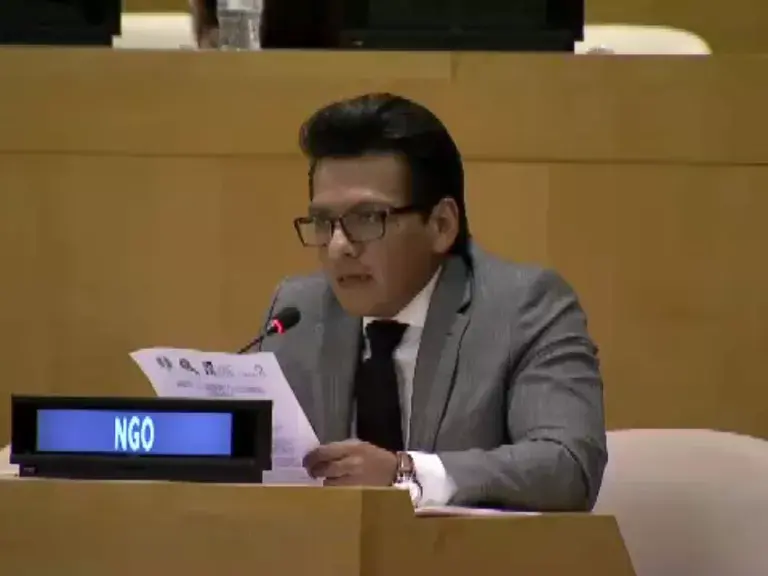
Leonardo Crippa, senior attorney of the Center, presents a joint statement to the Economic and Social Council (ECOSOC).
July 22, 2015 — Today in New York City, the Indian Law Resource Center, with the support of the Native American Rights Fund, National Congress of American Indians, and Ewiiaapaayp Band of Kumeyaay Indians, addressed the United Nations Economic and Social Council (ECOSOC) during its consideration of the UN Secretary-General's report on progress made in the implementation of the outcome document of the World Conference on Indigenous Peoples. The report contains important recommendations on the development of an implementing body for the UN Declaration on the Rights of Indigenous Peoples and for enabling the participation of indigenous peoples' governments in the UN.
The joint statement welcomes the Secretary General’s report and recommends specific actions the UN should take to follow-up on commitments made at the World Conference. Recommendations propose specific elements for the mandate and structure or composition of the body, such as paying special attention to the rights of indigenous women and children in its work, and recommends that indigenous peoples be heard directly in fashioning the details for guaranteeing the effective participation of indigenous governments.
Ultimately, countries will decide both the form and mandate of the implementing body and the process of accreditation, including any enhanced participatory rights, for indigenous governments in the UN. The statement urges that all of these decisions be made with the full, direct, and effective participation of indigenous peoples and their governments. The World Conference on Indigenous Peoples outcome document calls for action on some of these decisions during the 70th Session of the General Assembly, which will begin September 15, 2015.
In addition to the ECOSOC meeting this week, the Center, along with tribal leaders and representatives have worked to inform and follow-up on the report and recommendations of the Secretary-General through an online questionnaire, as well as during the UN Permanent Forum on Indigenous Issues in April, the 29th Session of the Human Rights Council in June, and the Expert Mechanism on the Rights of Indigenous Peoples’ annual session this week in Geneva.
